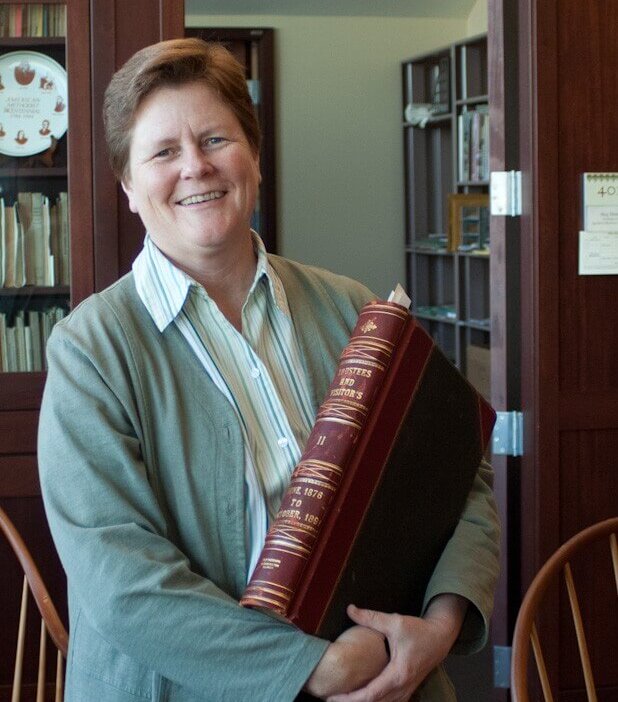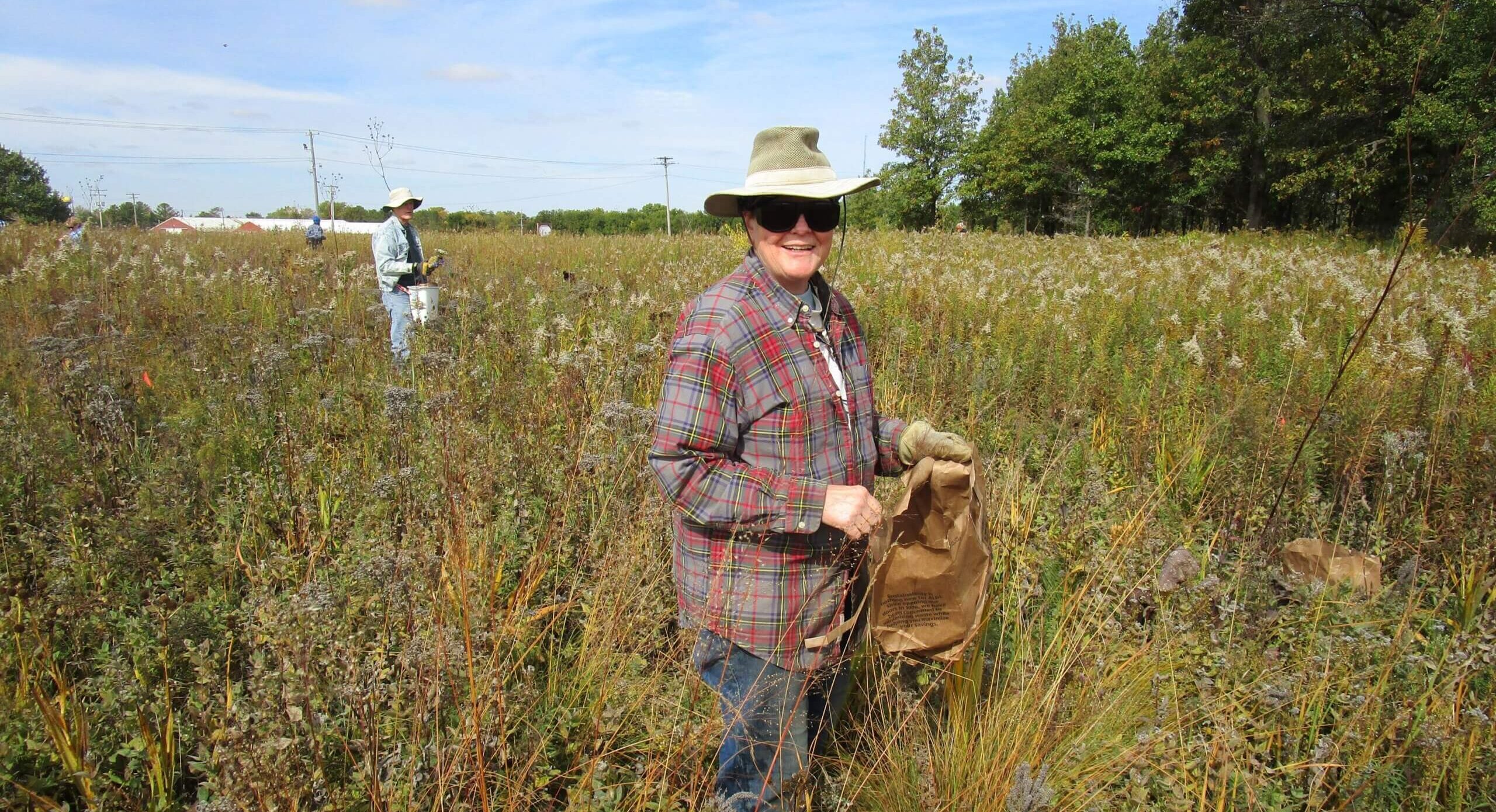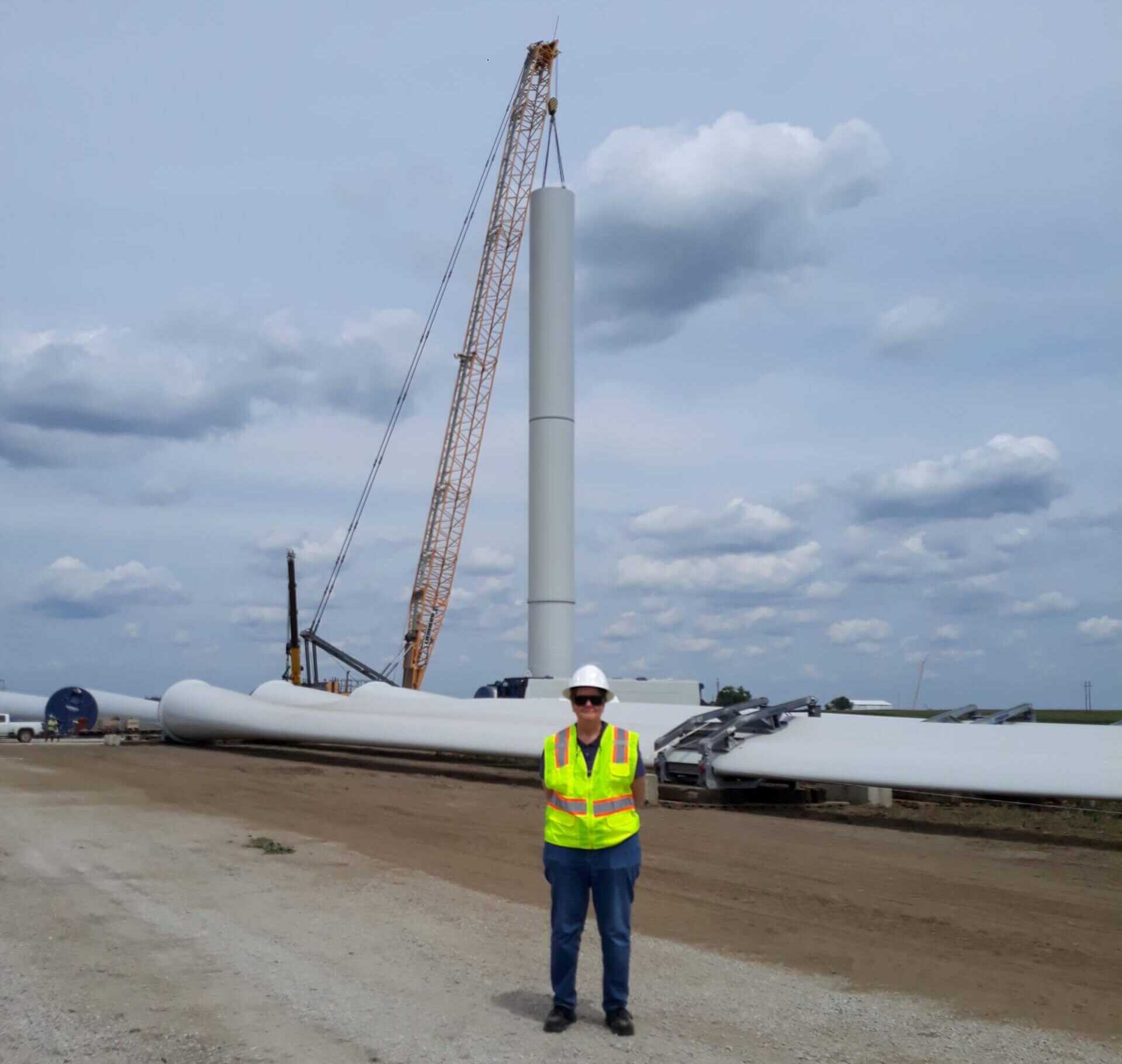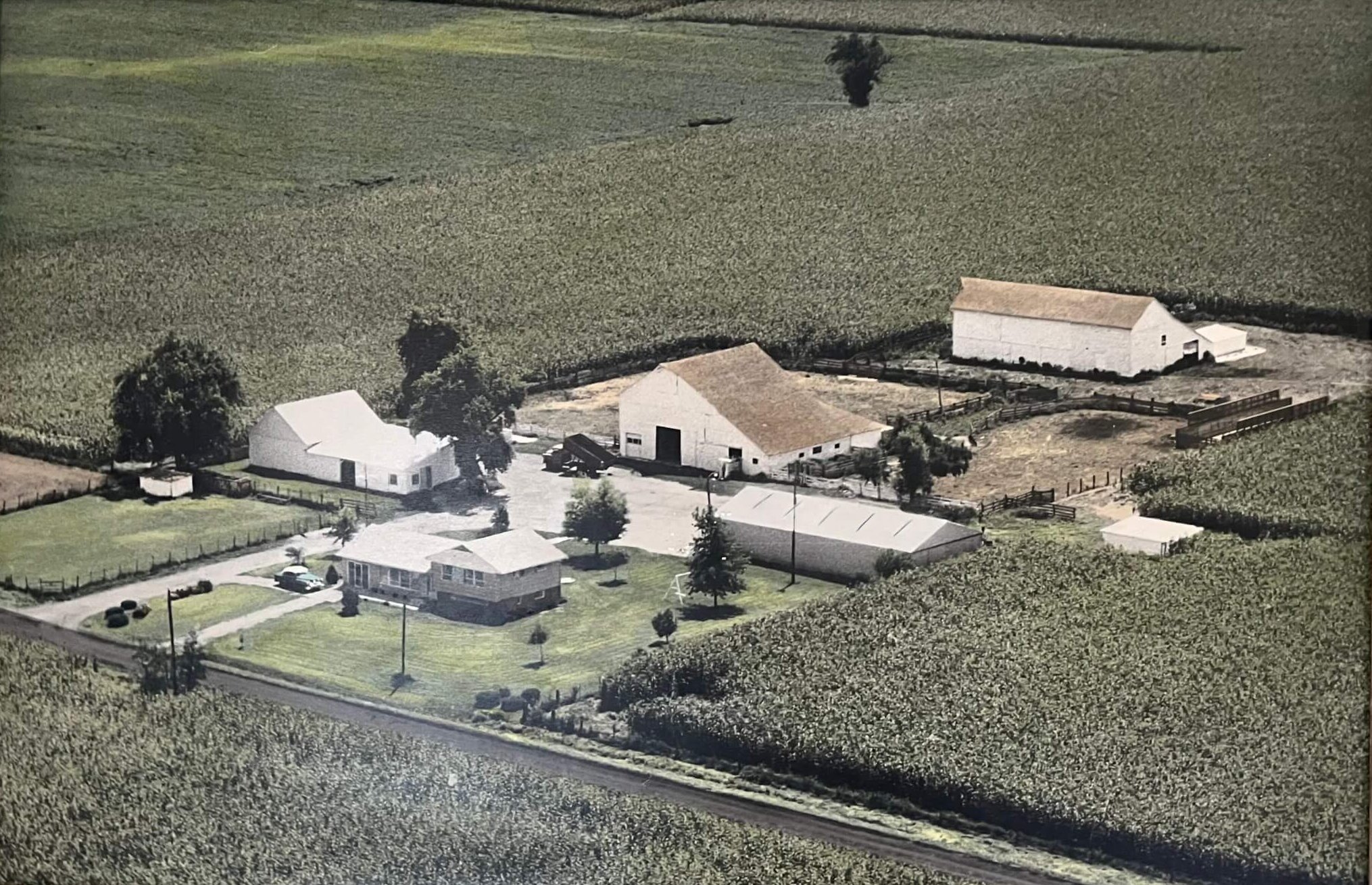Realizing a Vision of Prosperity
One Librarian’s Journey to Becoming a Clean Energy Advocate
Meg Miner first heard about Prosperity Wind from a large packet of informational materials that the county had sent in the mail.
A retired librarian and archivist, Miner was familiar with sustainable energy sources from participating in environmental groups while working at Illinois Wesleyan University. But she had watched the large wind farms grow north of I-74 on her daily commute and was uncertain about the effects they would have on Piatt County—a place she had called home for more than 20 years.
Then, one day, a neighbor gave her the heads up that he planned to host a turbine. “I’ve been involved in plenty of advocacy work in my day,” Miner said. “I decided then and there that it was about time to find out more by attending the hearing.”

The Heart of the Community
Farming runs in the blood and soil of Piatt County (population 17,000), and its residents hold a deep connection to the land they have stewarded for generations. A matter of local pride, the county led the nation in soybean production in 2022.
In the center square of the county seat, Monticello, sits the Piatt County Courthouse. Beyond its status as a local landmark, the courthouse has played host to all of the county’s decisions over the decades—from setting the annual budget to, now, the development of a wind farm.
“I figured it was a matter of time before wind turbines dotted the horizon,” said Miner. “But, like some other folks in the community, I was worried about how they might look.”
When she showed up to the courthouse, Miner assumed that the project would be rubber stamped that evening. Unbeknownst to her, she was attending the first of what would be 18 scheduled hearing dates. She was surprised by the formality of the courtroom-style proceedings and the intensive amount of time the county was dedicating to the discussion. Miner decided to return for the next hearing, and the one after that. By the end of the process, she had attended 26 meetings about the wind farm.

A Lifetime of Service
Originally from northern Illinois, Miner began her first career in the Air Force as a jet engine mechanic. After retiring, she utilized the state’s educational benefits for veterans to earn a bachelor’s degree from Northern Illinois University and a master’s degree from the University of Illinois, Urbana-Champaign.
Miner had moved to Piatt County while working on her master’s and planned to remain there after retiring from her second career as a librarian and archivist at Illinois Wesleyan. In her spare time, she championed a range of causes and, thanks to her partner, developed a passion for environmental preservation.
It was this experience—and her decades of experience evaluating research methodologies—that Miner drew on as the hearings for Prosperity Wind progressed. Since she wasn’t a landowner for the project, she felt she was able to judge it on its merits. And as meeting after meeting took place, she found the opponents’ evidence less and less compelling.
Like some in her community, she didn’t like the changes that the project would bring—and then she realized how selfish that sounded. Miner felt that concern for the environment should outweigh the inconvenience of hosting the wind farm. That concern, coupled with the validity of the evidence supporting the application, ultimately convinced her to support the project.
“I’m skeptical of any big company coming to a small town to do business, so I was surprised when Apex revised its proposal based on feedback it heard from the community,” Miner explained.
Additionally, she was impressed by the commitment to detail of the Apex staff and its witnesses. “I’m skeptical of any big company coming to a small town to do business, so I was surprised when Apex revised its proposal based on feedback it heard from the community,” Miner explained. “The team restructured the project boundaries to be more compact and make better use of the land.”
And since her property is surrounded by agricultural fields that easily burn, Miner appreciated that Apex committed to installing cutting-edge fire detection and suppression technology.
Seeing the Bigger Picture
At 300 MW, Prosperity Wind will provide enough clean energy to power the equivalent of 99,000 U.S. homes in a single year. The facility promises sustained tax revenue to the local government and meaningful payments to landowners for the next 30 years. In an area where income is largely based around agriculture, this revenue signifies the ability to preserve a way of life that has become increasingly difficult to maintain in recent times.
But for Miner, the importance of the wind farm extends beyond its economic impact. While she sympathizes with concerns about the visual inconveniences of hosting the facility, for her, protecting the environment is the utmost priority.

Miner decided to take action. She began reaching out directly to her elected officials and attending Piatt County Board meetings. At a pivotal time in the hearings process, she provided powerful testimony that challenged her neighbors and elected officials to consider what was best for their community and their world.
And as the final hearing date approached, she urged officials to schedule a vote on the project. The whole procedure had taken more than a year. Hundreds of workers were ready to start building Prosperity Wind, awaiting the county’s final approval to break ground. The merits of the application were unquestionable, and Prosperity Wind was approved.
When Miner attended that first hearing, she was a citizen seeking the best for her community. Equipped with a unique skillset she had developed over the course of her career, she listened intently, considered the evidence, and ultimately raised her voice in support of a project she believed was in the best interest of all. As Piatt County prepares to add a new, sustainable crop to its harvest, Prosperity Wind will stand as a testament to the transformative impact of a single voice in shaping the future.


